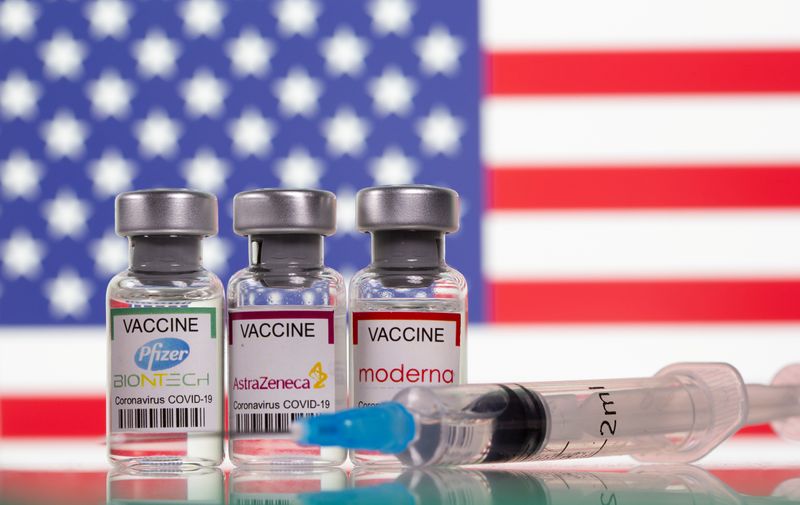By Sarah Marsh and Linda Hutchinson-Jafar
HAVANA (Reuters) - Several Caribbean island nations have issued a plea to the United States to share its stockpile of COVID-19 vaccines with the region as it has said it would with Mexico and Canada, calling on it not to neglect its "third border."
The independent island states of the Caribbean archipelago - except for Cuba, which is developing its own homegrown vaccines - have complained of inequitable global access to vaccines hurting countries like them without the financial or political heft to seal deals.
These nations have only received a dribble of shots as donations from India or through the COVAX vaccine-sharing mechanism, while neighboring Caribbean islands that are still territories of former colonial powers, like the Cayman islands, have already started mass vaccinations.
The tourism-dependent economies of Caribbean nations are among those that have been most ravaged by the pandemic, which has devastated the travel industry, forcing the already debt-laden region to take on new loans.
And several Caribbean countries, including Jamaica and Antigua and Barbuda, are experiencing severe COVID-19 outbreaks at the moment with new cases per capita more than twice the global average.
The head of the CARICOM Caribbean bloc, Trinidad and Tobago Prime Minister Keith Rowley, has written to U.S. President Joe Biden seeking provision of World Health Organization-approved vaccines for the region, a foreign affairs ministry source told Reuters, confirming an earlier report by Trinidadian newspaper Newsday.
The U.S. State Department did not immediately respond to a request for comment.
The United States plans to send roughly 4 million doses of AstraZeneca (NASDAQ:AZN)'s COVID-19 vaccine that it is not using to Mexico and Canada in loan deals with the two countries, the White House said last week.
The Biden administration has come under pressure from countries around the world to share vaccines, particularly its stock of AstraZeneca’s vaccine, which is authorized for use elsewhere but not yet in the United States.
AstraZeneca has millions of doses made in a U.S. facility, and has said it would have 30 million shots ready at the beginning of April.
The governments of Caribbean twin-island nations St. Kitts and Nevis and Antigua and Barbuda have also written to the Biden administration.
"I have myself indicated to the United States that ... having benefited the other two borders Mexico and Canada, that it would perhaps be useful for them to think of their 'third border', the Caribbean," Mark Brantley, the minister of foreign affairs for St. Kitts and Nevis, said at a virtual forum hosted by the Organization of American States (OAS) last week.
Antigua and Barbuda Prime Minister Gaston Browne said he underscored the fact that the economies of Caribbean island states had shrunk up to 30 percent, with unemployment rising to more than 50 percent in some cases.
"The vulnerability of states must become an important criterion in the provision of vaccines, and the Caribbean region is among the most vulnerable in the world," he wrote.

Jamaica last week became the first Caribbean country to receive COVID-19 vaccines through the World Health Organization-backed COVAX facility, but at just 14,400 doses it will not go far among the island nation's nearly 3 million inhabitants.